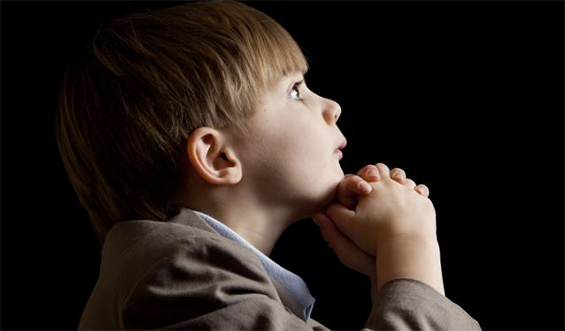
A study published in the journal Current Biology reviewed 1,100 children to find that those raised in a non-religious household were more likely to share with children unfamiliar to them at school than were children from religious homes, says Honor Whiteman writing for Medical News Today — but the research also found that the generosity of non-religious children increased as they matured.
The researchers say the findings challenge the notion that religious individuals do more good than non-religious persons. Jean Decety of the University of Chicago in Illinois, one of the researchers, said this idea can lead to assuming that non-religious individuals are morally suspect. In the US, he adds, individuals who are not religious have little chance of reaching a high political office, for example.
People who are agnostic or who are atheists are considered by many to be untrustworthy, amoral, or even immoral. It is a common belief that religion determines people’s moral compass and behavior, but, in reality, the relation of religiosity to morality is not always positive.
The children included in the study were between the ages of 5-12 and lived in the US, Canada, Jordan, Turkey, South Africa and China. About 43% of the children were Muslim, 23.9% were Christian, 2.5% were Jewish, 1.6% were Buddhist, 0.4% were Hindu, 0.2% were agnostic, 0.5% were “other”, and 27.6% were classified as not religious.
The children were asked to take part in a task involving giving stickers to a person from the same school and of similar ethnicity, writes The Mirror’s Jessica Ware. Children from families with no religious affiliation showed the most generosity. Children from religious families showed less generosity than those from non-religious households.
“Prior to the task, all parents in religious households reported that their children showed greater empathy and sensitivity for justice than non-religious children. However, to the contrary, the team found that religious children were most likely to deem interpersonal harm as more mean and deserving of harsher punishment than non-religious children,” according to the scientists.
Decety and his colleagues said “moral licensing,” the notion that doing something good, like practicing a religion, makes the consequences of immoral behavior less worrisome may be the explanation for their results. Previous studies in adults found that the more religious a person was, the less tolerant they were. Another finding was that religious people are not more likely to do good than non-religious people, explains Decety.
Danielle Wiener-Bronner of Fusion says the research team found that kids from more intensely religious households were found to be more selfish than less intensely religious families’ children.
The benevolent task given to the participating children was a version of the so-called “Dictator Game.” Researchers gave one child ten stickers and the opportunity to share them with an unseen child. The child’s altruism was contingent upon the number of stickers shared.
The moral sensitivity task involved the children watching animations in which one character bumps against or pushes another on purpose or accidentally. Children were then asked to measure meanness of the incident and to share what amount of punishment the character should receive.




